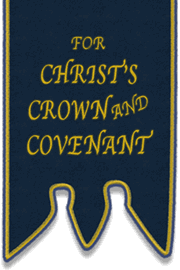Terms of Communion – RPNA Church
In order both to define our boundaries of fellowship and to make clear the conditions upon which we will unite with others, we desire to be explicit and forthright about our beliefs. These beliefs, otherwise known as our “terms of communion”, are as follows:
1. An acknowledgment of the Old and New Testament to be the Word of God, and the alone infallible rule of faith and practice.
2. That the whole doctrine of the Westminster Confession of Faith, and the Catechisms, Larger and Shorter, are agreeable unto, and founded upon the Scriptures.
3. That Presbyterial Church Government and manner of worship are alone of divine right and unalterable; and that the most perfect model of these as yet attained, is exhibited in the Form of Government and Directory for Worship, adopted by the Church of Scotland in the Second Reformation.
4. That public, social covenanting is an ordinance of God, obligatory on churches and nations under the New Testament; that the National Covenant and the Solemn League are an exemplification of this divine institution; and that these Deeds are of continued obligation upon the moral person; and in consistency with this, that the Renovation of these Covenants at Auchensaugh, Scotland, 1712 was agreeable to the word of God.
5. An approbation of the faithful contending of the martyrs of Jesus, especially in Scotland, against Paganism, Popery, Prelacy, Malignancy and Sectarianism; immoral civil governments; Erastian tolerations and persecutions which flow from them; and of the Judicial Testimony emitted by the Reformed Presbytery in North Britain, 1761 with supplements from the Reformed Presbyterian Church; as containing a noble example to be followed, in contending for all divine truth, and in testifying against all corruptions embodied in the constitutions of either churches or states.
6. Practically adorning the doctrine of God our Saviour by walking in all His commandments and ordinances blamelessly.

